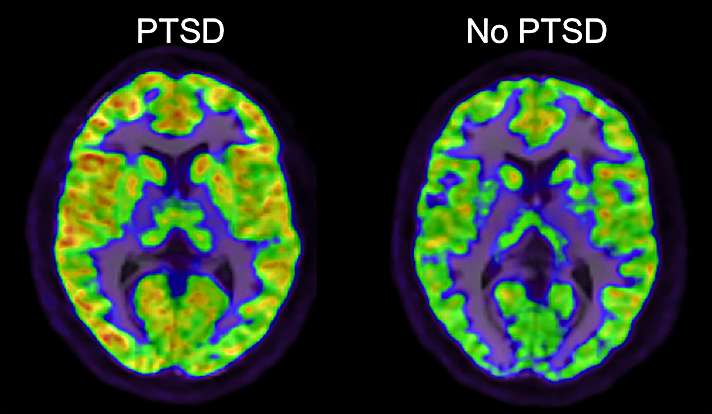Winner of the Fall 2018 StMU History Media Award for
Best Article in the Category of “Military History”
Best Article in the Category of “Science & Technology”
Charles Meyers, a Medical Officer, introduced the term “Shell Shock” to explain symptoms of Post Traumatic Stress Disorder (PTSD) displayed by military after combat in World War I (WWI). Soldiers often experienced symptoms including fatigue, tremor, confusion, nightmares, impaired sight, and impaired hearing. Meyers assumed that these symptoms were caused by the soldiers’ exposure to exploding shells, not necessarily the trauma they were witnessing or going through. In these years, symptoms of widespread PTSD were considered “weak” traits for soldiers by their colleagues and bosses. Even society as a whole started to view these symptoms negatively, which led to the destruction of their relationships after the Shell Shocked soldiers arrived home.1
Military gave Shell Shock victims no sympathy. When soldiers were dismissed from their duties, they were given labels such as “cowardice” or “emotionally weak.” These labels led to soldiers being targeted for abuse from their own side, as well as mock trials in which they were convicted. The pardons they received weren’t honorable, so they were often ashamed of their disorder, which led to more mental issues among the soldiers like depression, anxiety, and even suicide.2

New treatments flipped understandings of how World War I caused drastic changes in the behaviors of these men. Treatment for Shell Shocked victims before Arthur Hurst’s “miracle treatments” were very harsh, as they were often treated with Electroconvulsive Therapy, emotional deprivation, shaming, and solitary confinement. Some of the lesser treatments were hypnosis, massage, rest, and dietary treatments.3
Arthur Hurst primarily used occupational therapy to treat Shell Shocked patients, treating them as humanely and sympathetically as possible. This dignified care allowed for the increased numbers of “saved” soldiers, as they found ways to overcome the abuse and the labels given to them after their dishonorable discharges. Hurst’s treatments became iconic after the Newton Abbott’s Seale Hayne in Devon. Hurst’s approach allowed for 90% of Shell Shocked soldiers to be cured after only a single session.4

Modern day treatments, consist of therapy, as well as new medicines that aid in the control of the symptoms. According to Michael James, a pharmacist, there are Selective Serotonin Reuptake Inhibitors (SSRIs) that block the re-uptake of serotonin in the brain and help with sleep disorders, nightmares, and decreases intrusive thoughts. James also informed me that Serotonin Norepinephrine Reuptake Inhibitors (SNRIs) block the re-uptake of serotonin and norepinephrine in the brain which also decrease intrusive thoughts and provide aid for sleep disorders and nightmares.5
Hurst’s approach led to a change of heart and a consensus to the overall approach by society as a whole. Now, Veterans Affairs, also known as the VA, has a large program that provides aid to veterans with PTSD. However, this evolution of PTSD has not only been beneficial to veterans, but it has also allowed for a more diverse diagnosis of PTSD, in which it is more understood that other people, in addition to veterans, can also experience PTSD. PTSD can be caused from any sort of trauma including car accidents, violent crimes, and domestic violence. Individuals can even develop PTSD from having someone important abandon them as well. The DSM-5 has set a variety of symptoms for PTSD because just like any other disorder, it affects every individual differently. This document allows all individuals to gain access to the tools and help they need to recover from or live with PTSD.6

- Caroline Alexander, “The Shock of War,” Smithsonian Magazine, September 2010, https://www.smithsonianmag.com/history/the-shock-of-war-55376701/. ↵
- “Shell Shock,” BBC Inside Out, March 3, 2004, http://www.bbc.co.uk/insideout/extra/series-1/shell_shocked.shtml. ↵
- “Electroconvulsive Therapy: A History of Controversy, but Also of Help,” The Science Explorer, January 13, 2017, http://thescienceexplorer.com/brain-and-body/electroconvulsive-therapy-history-controversy-also-help; “Arthur Hurst: The Man Who Filmed Shell Shock,” BBC Radio 4, http://www.bbc.co.uk/programmes/articles/4VqPtrjsgcPKtgmYc2M5vXz/arthur-hurst-the-man-who-filmed-shell-shock. ↵
- “Arthur Hurst: The Man Who Filmed Shell Shock,” BBC Radio 4, http://www.bbc.co.uk/programmes/articles/4VqPtrjsgcPKtgmYc2M5vXz/arthur-hurst-the-man-who-filmed-shell-shock. ↵
- Email with Michael James, September 11, 2018. ↵
- Pete Walker, From Surviving to Thriving (Scotts Valley, CA: CreateSpace Independent Publishing Platform, 2013), 13-14. ↵



160 comments
Devin Ramos
To me, mental health should be something that is more studied and more funded, especially for our soldiers coming back home coming back from war. They give their lives to the war effort and when they come back home they don’t even get the treatment they deserve for PTSD they’re almost ignored. And it shouldn’t be like this the government should invest more in funding for the studying of war and its effects on the brain.
Dylan Coons
I’m glad that we as a society have taken a drastic turn in the way that we deal with mental illness. I’m also very happy to see that we do not use electric shock therapy to treat it anymore. This article was very informative and certainly interesting. I’m glad I took the time to read this and learn more about how PTSD affects the brain and the history of this subject.
Montserrat Moreno Ramirez
Mental health should be a priority in everyone’s life. PTSD, it’s not a veteran thing only, many people who went through several tough situations can find themselves in this position, and it’s great that nowadays there are different treatments and medication which people are able to use. I found it awful how people treated this heroes in the past.
Greyson Addicott
I wonder if the PTSD our warriors today feel is the same PTSD that our ancestors felt as they charged into battle with the enemy. Did the Vikings have to sit in therapy groups after every successful raid? Did the Crusaders of old have to diet while trying to take back Jerusalem? Honestly, I believe that the standards we are constantly exposed to today do not rightly prepare us for war anymore. Our soldiers need training that mirrors the experiences our ancestors had. The men in the War for Southern Independence, for instance, held the uncanny ability to steel their nerves before each well-placed shot. Perhaps we could learn something from history.
Robert Freise
My Mental health is priority number one for me. PTSD is no laughing matter and it should be treated like any other mentil disease. Imagine being a 18 year old high school senior and you are living in a neighbor hood with white picket fences, your mother is making you meals a=every day and your life is pretty protected and comfortable. And then you are in a jungle fighting for your life, with bullets flying by your head and you are witnessing mass trauma to soldiers within the battlefield. Calls for help and loud bomb noises echo in the distance. If I went to war, I think that I would have PTSD based of what these soldiers saw.
Rebecca Campos
PTSD is an unfortunate condition and it truly is a shame there was no true diagnosis until after WWI. The author created a very informative piece telling of the struggles that not only veterans but domestic violence victims, car crash victims, etc. go through when they experience something violent or terrifying. The author definitely helped to inform more about PTSD and hopefully more people will come to understand the disease and not see it as stigma. Hopefully more people will try to step into the shoes of these individuals to see that it may not be so easy for them.
Maxx Arizmendi
Mental health is an interesting subject to me because it has both positive and negative aspects in people. Based on reading this article, I don’t think that shell shock really affects mental health at all. I liked how this article talked about the side effects of shell shock, which made this article interesting to read.
Alexandra Lopez
Before reading this article I did not know about the military dishonoring those who had PTSD because of Shell Shock. Those who have sacrificed their mental health and relationships for their country should not have been dishonored or considered weak. The article is well written and informed the reader about the past struggles soldiers would have to face when they came home.
Michael
Outstanding article Alex! I enjoyed speaking with you on the pharmacotherapeutic treatments concerning PTSD. Thank you for involving me in your work. Sincerily Dr. Michael James. PharmD
Damian Jennings
Mental health is a high priority in my life, I do not believe it is an illness, I believe it is an unfortunate state of mind we are subjected into feeling, but those individuals with PTSD were previously shunned and looked down upon because it was viewed as a weakness. Through research and understanding it was then concluded that these people should be treated properly and I absolutely agree with the concept.